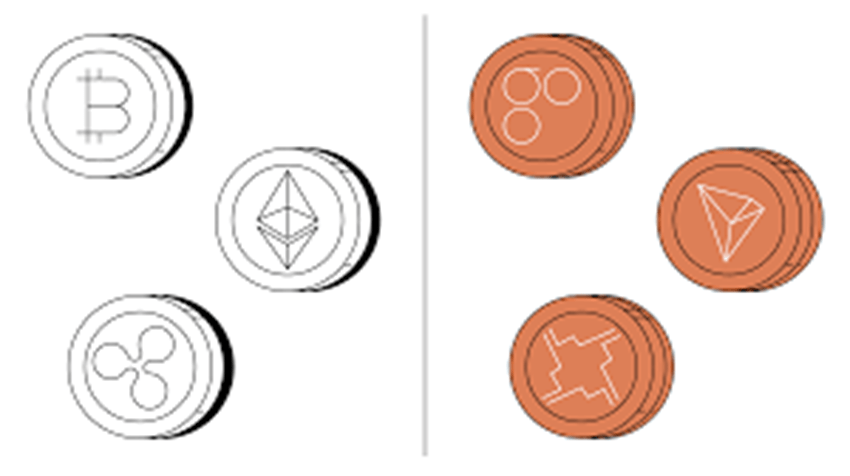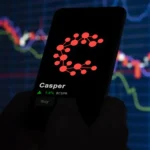Introduction
Cryptocurrency tokens have become integral to the digital economy, revolutionizing how we transact, invest, and interact online. These tokens are not just a new form of currency but a gateway to decentralized finance (DeFi), non-fungible tokens (NFTs), and beyond. Understanding their role and how to exchange them is crucial for anyone involved in the crypto space.
Understanding Cryptocurrency Tokens
Before diving into the specifics, it’s important to differentiate between cryptocurrency coins and tokens. Coins, like Bitcoin and Ethereum, operate on their own blockchain. Tokens, however, are built on existing blockchains and can serve various purposes within that ecosystem. The primary types of tokens are utility tokens, security tokens, and governance tokens.
The Role of Tokens in the Cryptocurrency Ecosystem
Tokens play several pivotal roles:
- Facilitating Transactions: Tokens are used as a medium of exchange within specific platforms or services.
- Enabling Decentralized Applications (DApps): Tokens fuel these applications, enabling functionality and access.
- Supporting Fundraising: Initial Coin Offerings (ICOs) and Security Token Offerings (STOs) use tokens to raise capital for new projects.
Utility Tokens
Utility tokens provide users access to a product or service. For example, Binance Coin (BNB) is used to pay for trading fees on the Binance exchange, often at a discounted rate. These tokens are essential in driving user engagement and platform functionality.
Security Tokens
Security tokens represent ownership in an asset, such as real estate or shares in a company, and are subject to federal securities regulations. These tokens offer benefits like fractional ownership and increased liquidity but face regulatory challenges that can complicate their issuance and trading.
Governance Tokens
Governance tokens grant holders voting rights in a decentralized protocol. This democratic approach ensures that stakeholders have a say in the future development and management of the platform. Popular governance tokens include Uniswap (UNI) and Aave (AAVE).
Token Standards and Protocols
Tokens follow specific standards to ensure compatibility and functionality within their respective blockchains. The most common standards are:
- ERC-20: The most popular standard on the Ethereum blockchain, used for fungible tokens.
- ERC-721: A standard for non-fungible tokens (NFTs), which are unique and cannot be exchanged on a one-to-one basis.
- BEP-20: Binance Smart Chain’s standard, similar to ERC-20, enabling interoperability between Binance’s ecosystem and Ethereum.
Token Economics (Tokenomics)
The success of a token often hinges on its tokenomics—the economic model that governs its supply, demand, and utility. Effective tokenomics ensure that tokens remain valuable and useful within their ecosystem. Key factors include total supply, distribution methods, and use cases.
How to Acquire Cryptocurrency Tokens
Tokens can be acquired in several ways:
- Purchasing through Exchanges: The most straightforward method, involving buying tokens on platforms like Binance, Coinbase, or Kraken.
- Earning through Staking and Mining: Some tokens can be earned by participating in network activities like staking (locking up tokens to support network operations) or mining (validating transactions).
Exchanging Cryptocurrency Tokens
Exchanging tokens can be done on centralized exchanges (CEX) or decentralized exchanges (DEX). Each has its advantages and disadvantages.
Centralized Exchanges (CEX)
Centralized exchanges are platforms where trades are facilitated by a central authority. They offer high liquidity, user-friendly interfaces, and various trading pairs. However, they require users to trust the platform with their funds.
Decentralized Exchanges (DEX)
Decentralized exchanges operate without a central authority, allowing peer-to-peer trading. They offer greater security and privacy but can have lower liquidity and a steeper learning curve.
Steps to Exchange Tokens on Centralized Exchanges
- Setting Up an Account: Register on the exchange and complete any required identity verification.
- Depositing Funds: Transfer cryptocurrency or fiat to your exchange wallet.
- Making a Trade: Choose your trading pair and execute the trade.
Steps to Exchange Tokens on Decentralized Exchanges
- Connecting a Wallet: Use a compatible wallet like MetaMask to connect to the DEX.
- Navigating the DEX Interface: Familiarize yourself with the trading interface.
- Executing a Trade: Select your trading pair and complete the transaction directly from your wallet.
Security Considerations When Exchanging Tokens
Security is paramount in the crypto world. Always enable two-factor authentication (2FA), use secure wallets, and be cautious of phishing scams. Never share your private keys or recovery phrases.
Future of Cryptocurrency Tokens
The future of tokens looks promising, with innovations like tokenized assets, decentralized finance (DeFi), and advancements in blockchain technology driving growth. These trends could reshape the global financial system, making transactions faster, cheaper, and more transparent.
Conclusion
Cryptocurrency tokens are at the heart of the digital revolution, offering new ways to transact, invest, and participate in decentralized networks. Whether you’re acquiring, using, or exchanging tokens, understanding their role and potential is crucial. The future holds exciting possibilities, and staying informed will help you navigate the evolving landscape.
FAQs
- What is the difference between a coin and a token?
- Coins operate on their own blockchain, while tokens are built on existing blockchains and serve various purposes within that ecosystem.
- How can I identify a good token investment?
- Research the project’s whitepaper, team, use case, and community support. Look for transparency, solid technology, and real-world applications.
- What are gas fees in token transactions?
- Gas fees are transaction fees paid to miners for processing transactions on the Ethereum network. They vary based on network congestion and transaction complexity.
- Can I create my own token?
- Yes, creating a token is possible with the right technical knowledge. Platforms like Ethereum and Binance Smart Chain provide frameworks for creating custom tokens.
- What is token burning?
- Token burning is the process of permanently removing tokens from circulation, reducing the total supply to increase scarcity and potentially enhance value.



